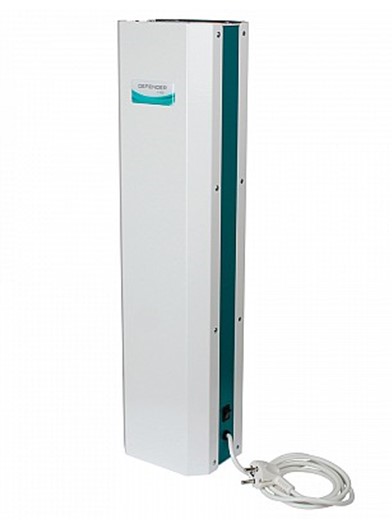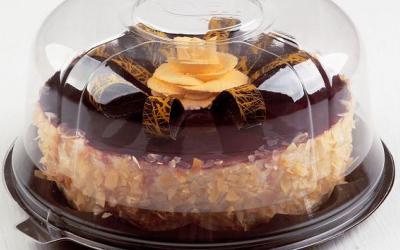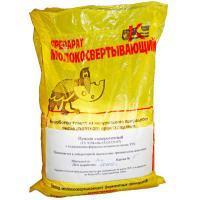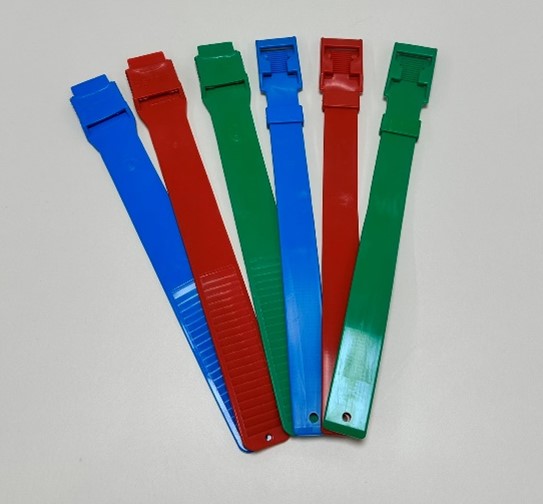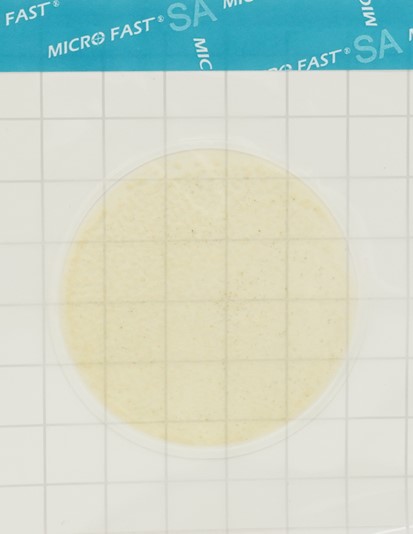Moscow imposed restrictions on visiting restaurants. What is important to know

What happened
The Moscow authorities have introduced new restrictions on visiting catering: from June 28, only visitors who have protection against covid-19 will be able to enter cafes and restaurants and other catering establishments in the capital . The corresponding decree was signed by Moscow Mayor Sergei Sobyanin.
At the entrance, visitors will need to present a special QR code confirming that they have been vaccinated against COVID-19, that they have had an illness in the past six months, or that they have a negative PCR test valid for three days.
People who have received the first of the two vaccines required for the COVID-19 vaccine will need to undergo a PCR test until they receive the second component of the vaccine. Such a test must be passed in one of the Moscow clinics that transmit information to the EMIAS system.
video
Confirmation of protection against COVID-19 must necessarily be in the form of an electronic code - paper certificates and certificates will not be accepted, Sobyanin warned.
It will be possible to issue a QR code using an electronic medical card, through the registration of a city polyclinic, on a single portal of state and municipal services or in the State Services.Stopcoronavirus application, on the mos.ru website or on the EMIAS.INFO resource. At the same time, an antibody test at catering points will not be taken into account, explained the HEAD of the capital's department of trade and services, Alexei Nemeryuk.
What restaurants need to do
Restaurants and cafes will need to create a system for checking the availability of QR codes if they want to continue working as usual, according to the theses on the new restrictive measures that RBC provided in the mayor's office. Those catering establishments that do not comply with this requirement will be able to work only takeaway or delivery. At the same time, inside catering establishments, visitors who have passed the control will be able to be without masks and gloves, although employees of cafes and restaurants must still wear these protective equipment.
How the authorities explain the restrictions
The decision to introduce these restrictions was made after a dialogue with entrepreneurs, the city authorities say. Last week, the mayor of Moscow announced that an experiment to create “COVID-19-free zones” will be launched in the capital’s restaurants and food courts from June 19 — 100% of employees will be vaccinated in such establishments, and only guests who have been vaccinated will be able to get there. or recovered and with antibodies.
More than 200 companies participate in the experiment, according to the registry posted on the website of the Moscow Innovation Cluster.
The mayor of the capital acknowledged that in the process of adapting to the new rules, difficulties may arise due to the lack of information in the database about those who have already had COVID-19, were vaccinated or passed the test. However, these issues, Sobyanin promised, would be promptly resolved by a special analysis group.
What is the first reaction of restaurateurs
The introduction of new restrictions with business was not discussed again, objected the founder of the AnderSon network and the business ombudsman for small and medium-sized businesses Anastasia Tatulova. “The fact that the vaccination campaign failed throughout the country, despite the declared victory over the virus, is the responsibility of the authorities, it cannot be done through entrepreneurs, they are not able to fulfill these requirements and should not be doing this,” says Tatulova. In her opinion, if the situation in Moscow is so critical, then measures should be introduced throughout the city and, in parallel, help be introduced to the affected industries, vaccinate migrants, and also make vaccination points at the airport and not let them into the country without a PCR test or vaccination certificate.
The new restrictions, according to the majority of restaurateurs interviewed by RBC, "are tantamount to a lockdown." 90% of the city's residents will not be able to go to restaurants, points out Sergey Mironov, founder of the MEAT & Fish restaurant chain. The decrease in the number of guests due to new restrictions may be total, says Igor Bukharov, President of the Federation of Restaurateurs and Hoteliers of RUSSIA. According to him, on Wednesday, June 23, a meeting is scheduled at which restaurateurs will discuss work in the new conditions with the capital's department of trade and services.
Catering will inevitably face a decline in revenue, admits managing partner and CEO of Ginza Project Moscow Maxim Polzikov. “So far, the proportion of those vaccinated is still small, and not everyone can afford to pay for a PCR test every time to visit a restaurant,” RBC’s interlocutor points out.
“At the first stage, of course, it will be a disaster, the flow will more than halve,” predicts Alexei Vasilchuk, co-owner of the Restart Vasilchuk Brothers restaurant holding, adding that he understands the current situation in the city: “Now it is worse than ever from the point of view of morbidity and course of the disease. “In my opinion, this is a compromise solution - to introduce such a story instead of a lockdown, which we definitely will not survive,” Vasilchuk sums up.
How restaurateurs assess the prospects of their business
It will most likely be impossible for restaurants and cafes to work under the new conditions, Tatulova is categorical. According to her, only very large bars and restaurants have security that can provide access at the entrance, the rest do not have the opportunity to hire at least two security guards within five days and put them at the entrance, especially if it is a cafe for 10-20 tables, where two or three employees work in a shift. “We are the hospitality industry, we do not have the option of putting someone at the entrance to establishments to check medical records and passports. We are not a hospital or a prison - we are the people who make this city hospitable." Such a measure, according to Tatulova, will not work: the closure of restaurants will only lead to an increase in orders for food delivery, which is prepared and delivered by unvaccinated migrant workers who are not covered by the mayor's decree.
In fact, a lockdown begins for restaurants from June 28, because “of course, the industry cannot work for 10% of vaccinated Muscovites,” says Dmitry Levitsky, founder of the HURMA group. In his opinion, restaurants will try to work until the end of June, because they have already paid rent and salaries for the month, but “from July 1, many will probably not open.” Establishments with a certain product — pizza, sushi or burgers — can work for delivery, ordinary restaurants have “meager revenue from delivery” and it’s easier for them to close, Mironov agrees.
From the point of view of technical requirements, there should be no difficulties for restaurateurs, Bukharov objects. In his opinion, the same person who checks masks and temperature can check the QR code at the entrance to the restaurant.
What will happen to the food courts
Food courts in shopping centers will be opened only after checking the control system that prevents visitors who do not have QR codes from entering the seating area, according to the theses of the mayor's office.
In fact, food courts will remain closed, says Anton Krasulin, CEO of the Vocker noodle chain. If by June 28 the authorities explain that food courts will be available with such a filter, from a business point of view, this will not give them anything, because the percentage of those who have been vaccinated, recovered and have documents on antibodies is quite low, Krasulin believes.
Food courts are a common area, and if it is necessary to organize checkpoints there, it will be additional costs for the administration of shopping centers: the design of shopping centers is different everywhere, somewhere it is possible to cut off flows, somewhere it is difficult to do so. “If you wish, this can be organized, but for business it will be a profanation of activity, because de jure we will work, but there will be no revenue,” Krasulin continues.
How much does catering earn in the summer
The peak month for the entire metropolitan catering is December, according to data from the Rosstat department for Moscow and the Moscow region. In 2019, in December, the turnover of all establishments in this area (they include not only cafes and restaurants, catering points, but, for example, factory canteens and cafeterias) exceeded 19.7 billion rubles. Approximately the same figure - 19.2 billion rubles. was in September. In June, July and August 2019, these were, respectively, 16.3 billion, 17 billion and 17.3 billion rubles.
In June 2020, the turnover of the entire metropolitan catering, according to Rosstat, amounted to only 9.5 billion rubles: after several months of lockdown, the terraces were opened only in mid-June, and in the last days of the month they were allowed to receive visitors indoors. In July 2020, when all restrictions were already lifted, it was already 15.1 billion rubles, in August - 16.2 billion rubles.
What the share of delivery and self-pickup can be can be judged by the indicators for April and May 2020, when the self-isolation regime was in effect in Moscow. In those months, the turnover of the capital's catering was only 34-36% of the figures for the same months in 2019.
Read together with it:
- О самых распространенных причинах пожаров рассказали в МЧС2 октября, Минск. О самых распространенных причинах пожаров рассказал начальник главного управления надзора и профилактики МЧС Дмитрий Турчин на "Предупреждение чрезвычайных ситуаций в осенне-зимний период. Профилактика пожаров и гибели людей от них", которая прошла в БЕЛТА. "В республике наблюдается рост количества пожаров на 7,7%, и на 1......
- Роспотребнадзор приостановил работу воронежского мясокомбината из-за серьезных санитарных нарушенийОбнаружено, что предприятие не соблюдало требования к чистоте помещений и инвентаря, а также не осуществляло контроль за качеством пищевого сырья и условиями хранения продукции. Кроме того, работники не придерживались правил личной гигиены, не имели чистой санитарной одежды и не проходили необходимые медицинские обследования. В производственных помещениях не проводились регулярные уборки и дезинфе...
- В Раменском выведена новая порода кроликов — Великородская белаяЭто значимое событие обозначает первую отечественную породу, разработанную для племенного и промышленного производства за последние 60 лет. Глава Раменского муниципального округа Эдуард Малышев посетил институт, где директор, доктор биологических наук Глеб Косовский, провел ознакомительную экскурсию для почетных гостей. Институт служит научно-методической базой для разработки технологий в области ...
- Боливия экспортирует говядину на сумму 797 миллионов долларов и вводит новые цифровые сертификаты для внешней торговлиЭкспорт говядины из Боливии в период с 2021 по 2025 год достиг 797 миллионов долларов. Китай является основным рынком сбыта этого мяса, на который приходится 74% продаж, сообщила Карина Серрудо, генеральный директор Национального таможенного управления. Параллельно с этим ведомство включило сертификат безопасности экспортных пищевых продуктов для говядины в систему «Единое окно для внешней торговл...
- Премьер Финляндии призвал ЕС быть оборонным союзом, а не торговым блокомЧтобы избежать потенциальной угрозы от «враждебных государств», Евросоюз должен укреплять оборону и сотрудничать в данной сфере, заявил финский премьер Орпо. Он отметил, что это не будет значить, что Брюссель «вытесняет» НАТО Петтери Орпо Евросоюз должен взять на себя «беспрецедентные полномочия», чтобы защититься от «растущих угроз». Об этом сказал премьер-министр Финляндии Петтери Орпо, сообщает...









